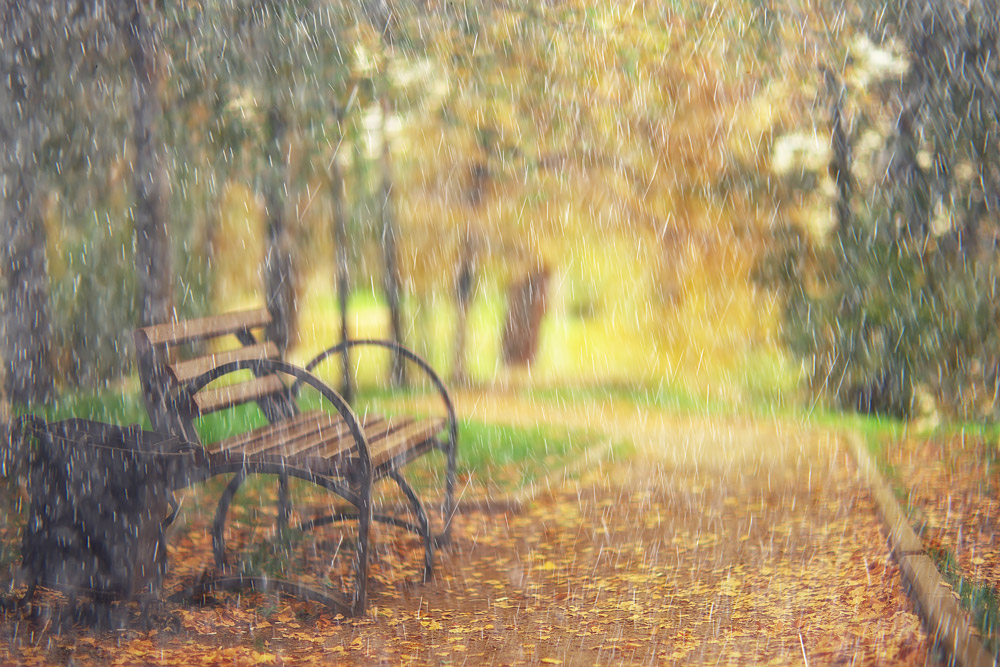Did you know sunlight is related to serotonin production? And since serotonin can reduce the symptoms of depression, the lack of sunlight in the fall and winter months can be troublesome for many.
If you dread winter for the shorter days and colder temperatures, you’re not alone. Without sunlight to boost serotonin production in the brain, it can lead to mood changes, loss of appetite, and poor sleep. Read on to see how you can overcome these hurdles and find ways to smile through all the seasons.
Benefits of Sunlight
Other benefits of natural sunlight include Vitamin D, which can help reduce inflammation and promote cell growth. We can get Vitamin D from food sources, but the sun is actually the most efficient source of this nutrient.
The sun and moon cycles provide day and night for the Earth, but they also affect your body’s biological rhythm, known as the circadian rhythm. Exposure to sunlight throughout the day can affect your body’s natural ability to regulate wake and sleep cycles. There’s a two-hour window of time every morning and night during which exposure to sunlight can affect when your body is ready to retire for the evening.
Sunlight also affects the production of nitric oxide in our bloodstream. Nitric oxide affects blood pressure, so the right amount of sun for your body can help lower blood pressure.
Seasonal Affective Disorder (SAD)
Let’s get down to the nitty-gritty of Seasonal Affective Disorder (SAD). Seasonal depression might creep in after all the hustle of the holidays subsides and you’re left facing a bleak January, February, and March full of cold temperatures and dark days. You can’t force always be outside during the daylight hours thanks to school, work, or other obligations, so what can you do to combat seasonal depression?
Someone living with seasonal affective disorder is suffering from an imbalance of serotonin and melatonin (which is the hormone that helps regulate sleep). Here are some tips to help remedy this imbalance:
Follow the Sun
It isn’t always feasible to be up with the sun, but in winter it might be an important tool for overcoming crippling depression. Often, the sun is up around the 7 am hour in the early days of winter, so it isn’t too hard to stand outside or at least at a window and let that light wash over you.
If you can’t greet the sunrise, plan to use break times during the day to catch natural light as often as possible. Even when the thermometer drops below freezing, it’s important to get outside and soak up whatever sunshine you can.
When it isn’t possible to get natural sunshine, supplement with a sun lamp. The bulbs are specifically designed to mimic sunshine and are common in places that only get a few hours of daylight during the winter. If at all possible, aim for 30 minutes of sun exposure first thing in the morning, whether it’s natural or artificial.
Go Negative to Feel Positive
Negative ions are electrically charged ions in the air. Negative ions have been shown to reduce feelings of depression after a few weeks of 30-minute sessions of exposure. Negative ions are abundantly present at the seashore, in the air after a lightning storm, or can be produced by a negative ion air purifier. Negative ions not only boost mood, but they can clean the air around us.
Explore Medications and Supplements
You can increase your vitamin and mineral intake, and add anti-depressants to your arsenal to combat seasonal depression. Talk with your doctor and see if there’s a combination of over-the-counter or prescription options that might help.
Supplements
- B Vitamins (B12 and B6)
- Creatine
- Magnesium
- Omega-3 Fatty Acids
- Rhodiola
- Saffron
- Vitamin D
- Zinc
Anti-Depressants
- Selective Serotonin Reuptake Inhibitors (SSRIs)
- Serotonin and Norepinephrine Reuptake Inhibitors (SNRIs)
- Tricyclic Antidepressants (TCAs)
- Monoamine Oxidase Inhibitors (MAOIs)
Be An Outsider
To help fight seasonal depression, it’s important to stay active and have things to look forward to. Outings with friends, attending events, and even regular phone calls can help make winters feel less desolate. Working from home can make it difficult to have interactions with others throughout the day, so put an emphasis on evenings out with loved ones, or weekends at art galleries for some enriching solitude. Whatever it is that brings joy into your life, keep it going this winter.
You may have resigned yourself to the so-called “winter blues,” but if you suffer from depression every winter for a number of years, it is more serious than just the blues. And what’s worse, not treating seasonal depression can lead to other issues, such as:
- Disordered eating
- Disrupted sleep patterns
- Relapse into addictive behaviors
Not to mention, your work and personal relationships can suffer when you’re unable to crawl out of the proverbial and literal darkness of winter. To help you understand whether or not what you’re feeling classifies as Seasonal Affective Disorder, consider keeping a journal of your thoughts and behaviors as the seasons change. Use this information to discuss what you’re experiencing with your doctor or therapist, and how you can treat it.
